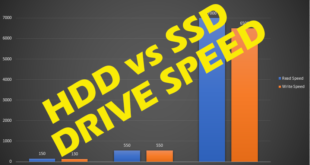 Choosing an appropriate web hosting plan is as important as selecting an ideal domain name when it comes to building a successful online endeavor. With the hosting industry being so competitive it can be difficult to conduct side-by-side comparisons, as companies are consistently trying to outdo each other by creating unique packages that make decision-making complicated. However, once you understand the essential features of a hosting plan, and the main differences between hosting types, you’ll be able to choose a provider and package that is suitable for your needs and preferences as a webmaster. So, here is how to conduct the web hosting comparison.
Choosing an appropriate web hosting plan is as important as selecting an ideal domain name when it comes to building a successful online endeavor. With the hosting industry being so competitive it can be difficult to conduct side-by-side comparisons, as companies are consistently trying to outdo each other by creating unique packages that make decision-making complicated. However, once you understand the essential features of a hosting plan, and the main differences between hosting types, you’ll be able to choose a provider and package that is suitable for your needs and preferences as a webmaster. So, here is how to conduct the web hosting comparison.
Bandwidth, Disk Space, CPU, and RAM Capabilities
 Comparing the attributes of the server that will power your hosting plan is the first step to making an informed choice. With a shared hosting plan you’ll be allocated a specific partition of the server, and the rest of the resources are evenly distributed to other webmasters. On the other hand, a dedicated server is solely devoted to performing tasks related to your websites, and can therefore offer more reliability and better performance as your traffic and data levels increase. Dedicated hosting plans are also easier to compare because most providers openly state the technical specifications of the server, including the processor type, total random access memory, and available disk space.
Comparing the attributes of the server that will power your hosting plan is the first step to making an informed choice. With a shared hosting plan you’ll be allocated a specific partition of the server, and the rest of the resources are evenly distributed to other webmasters. On the other hand, a dedicated server is solely devoted to performing tasks related to your websites, and can therefore offer more reliability and better performance as your traffic and data levels increase. Dedicated hosting plans are also easier to compare because most providers openly state the technical specifications of the server, including the processor type, total random access memory, and available disk space.
Integrated Software and Support
Once you’ve examined the hardware and data storage/transmission capabilities of plan it would be wise to check out the included software to conduct the web hosting comparison. Having a well-documented and popular control panel like cPanel is always an advantage, as there are plenty of video tutorials and other forms of assistance online that will ease the learning curve and help you become proficient in administrative duties expeditiously. Look for a hosting provider that emphasizes the inclusion of auto-installer modules, like Softaculous, which make it easy to set up scripts within the control panel. Of course, it would be best to choose a web host that offers multiple customer service contact methods (including e-mail, phone, and live chat). A dedicated hosting plan typically provides the most reliable support, as dedicated customers are given high priority. In fact, studies have shown that people who lease dedicated servers spend the least amount of time on hold when waiting for phone assistance from their hosting provider.
Guarantees, Online Feedback, and Pricing
 Nowadays it seems as if every hosting company is promising 99% uptime and moneyback guarantees, so how do you tell which ones are sincere? Any host that has been around for more than a couple of months probably has received some feedback from previous customers in the form of reviews and ratings. Although online feedback is not a specific feature of a hosting plan, it does reliably indicate whether a provider will be able to live up to their guarantees. Finally, comparing the price of a plan to ensure that you’re receiving an ideal value is of obvious importance, yet may be the most challenging step considering the various methods used to calculate server resource usage. In other words, a VPS hosting plan within a cloud network may only require you to pay for the bandwidth/disk space used on a monthly basis, while a shared hosting plan will charge you for a predefined limitation that you can’t exceed each month. Furthermore, while many VPS and dedicated hosting plans allow you to pay on a monthly basis, most of the “cheap” shared plans require payment for a year of service in advance, so you actually have to pay more initially for a plan that costs less on monthly basis.
Nowadays it seems as if every hosting company is promising 99% uptime and moneyback guarantees, so how do you tell which ones are sincere? Any host that has been around for more than a couple of months probably has received some feedback from previous customers in the form of reviews and ratings. Although online feedback is not a specific feature of a hosting plan, it does reliably indicate whether a provider will be able to live up to their guarantees. Finally, comparing the price of a plan to ensure that you’re receiving an ideal value is of obvious importance, yet may be the most challenging step considering the various methods used to calculate server resource usage. In other words, a VPS hosting plan within a cloud network may only require you to pay for the bandwidth/disk space used on a monthly basis, while a shared hosting plan will charge you for a predefined limitation that you can’t exceed each month. Furthermore, while many VPS and dedicated hosting plans allow you to pay on a monthly basis, most of the “cheap” shared plans require payment for a year of service in advance, so you actually have to pay more initially for a plan that costs less on monthly basis.
 Cheapest Linux VPS Home for Cheap Virtual Private Server
Cheapest Linux VPS Home for Cheap Virtual Private Server 

